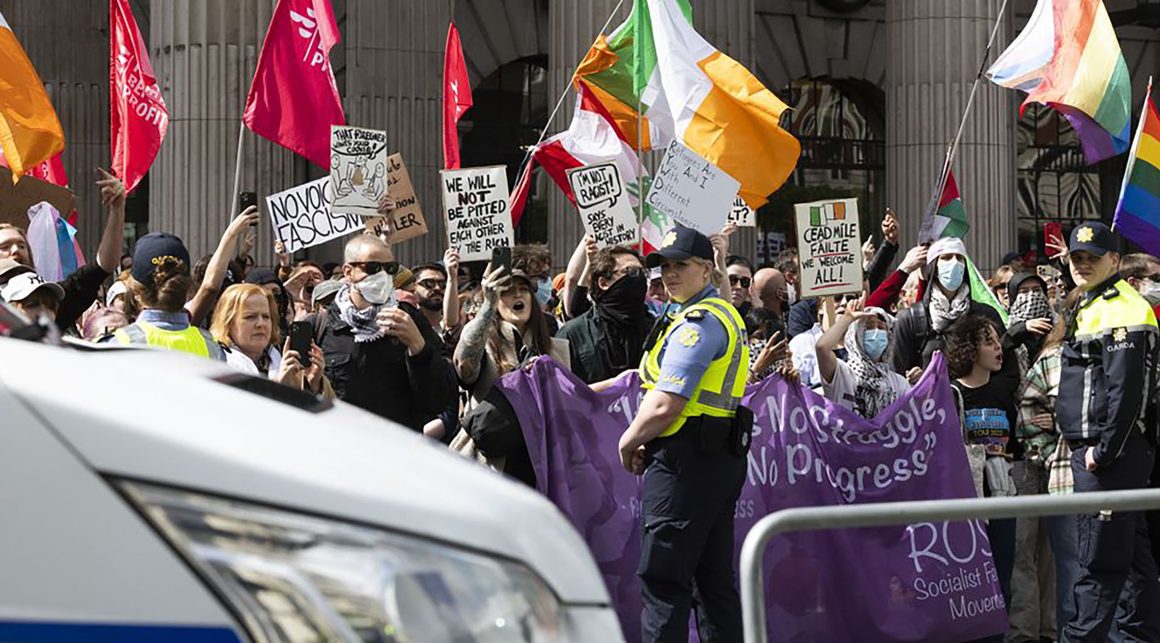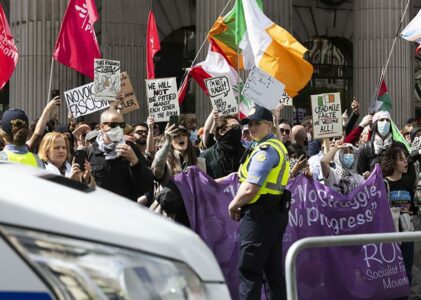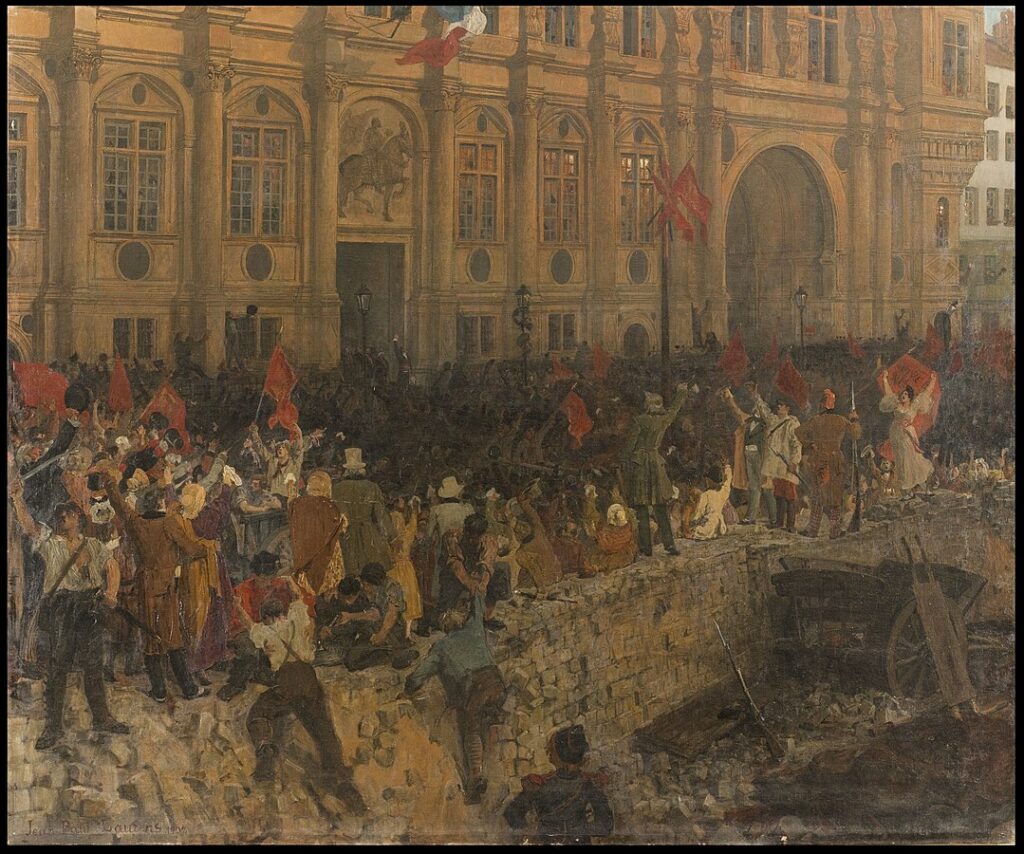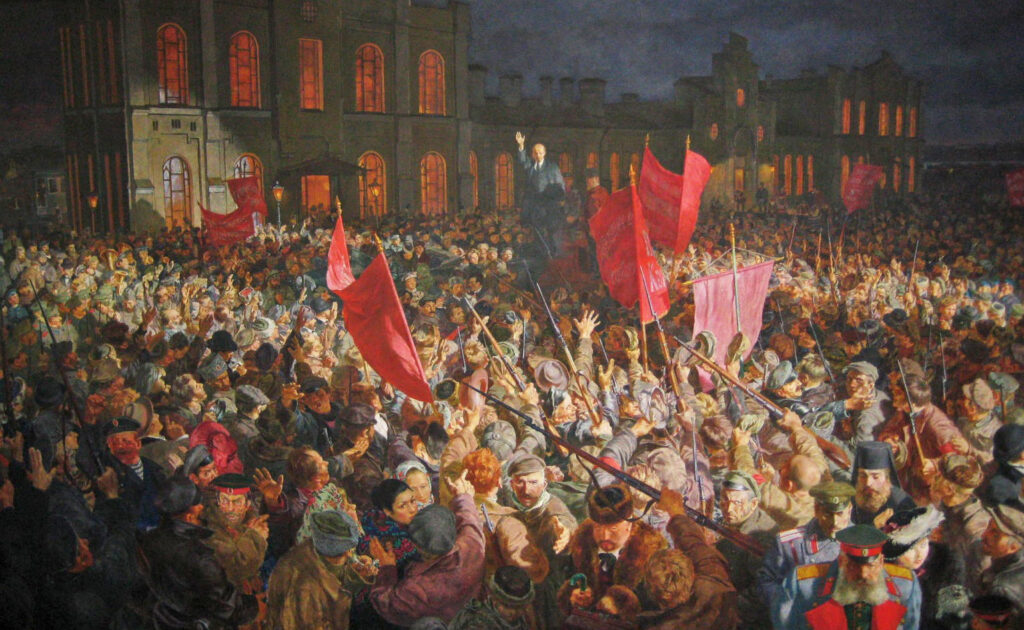László Molnárfi is Wrong About Antifascism
By Alexander Rakhmetov
In his short article We Need Class Struggle And Organic Anti-Racism Not Performative Politics, my comrade, co-writer, and good friend László Molnárfi criticized a counterdemonstration against a fascist march in Dublin by United Against Racism, mostly led by the political party People Before Profit, which is characterised by a mix of Cliffite Trotskyist and democratic socialist politics. The crux of his argument was that counterdemos of this sort are not only performative, but counterproductive as they are, in his words, “literally opposite to elements of our communities, and calling everyone ‘racists’” (Molnárfi 2025).
While I agree that the counterdemo was highly flawed and performative, I believe that Molnárfi goes in the wrong direction with his criticism. I hope to provide a critique that builds upon his points while also going in a direction that I believe will protect the most marginalized among us more.
The Demonstration
On the 26th of April, 2025 a large far-right march went through the heart of Dublin. Molnárfi estimates the march to have been made up of somewhere between 5,000 and 10,000 people, which I have no reason to doubt. The counterdemonstration, in turn, did not exceed 2,000 by my estimates. The march’s slogans were typical: Ireland is being “invaded” by a flood of immigrants with the help of the ruling elites and the immigrants must be thrown out. Marchers flew Irish national flags, American national flags, canards regarding George Soros, and posters of Conor McGregor, Donald Trump, and Elon Musk. It also demonstrated a worrying trend of the far right becoming emboldened enough to openly display fascist iconography. Quite a few marchers were doing Nazi salutes.
The counterdemonstration stood by, blocked by police on horseback from stopping the march. It yelled slogans and flew many flags, but did little.
Molnárfi’s Critique and Its Flaws
Molnárfi argues that the counterdemo illustrates a flaw of the Irish left. It is performative and moralistic in his view. In this, he is right. Yelling from the sidelines is of limited use. It does not dissuade fascists nor does it persuade onlookers. He is also correct regarding the source of this right-wing sentiment:
“In the past few years, immigration to Ireland has risen. At the same time there are many poorer working class communities who feel completely left behind by Irish capitalism. This has led to an outbreak of anti-immigration sentiment with some communities demanding consultation before the establishment of asylum shelters, stricter immigration policies and the relocation of migrants.” (Ibid)
It is here that Molnárfi veers into error, however. He characterises the fear of fascism as a “spectre”, a “scarecrow” (Ibid). In my in-person conversations with him, he insists that the average marcher was not a fascist, despite them marching with those doing literal Nazi salutes. Thus he says that such counterdemonstrations alienate the working class and that what the left must do is address the legitimate concerns at the core of such movements (that of asylum shelters being built in communities without the resources to support them) with progressive, pro-immigration solutions. He says that:
“Counter-demonstrations may be important in specific cases, such as when the composition of a protest is overwhelmingly fascist, or when they plan to attack migrants, but they cannot be substituted for deep organizing, and patiently explaining the socialist answer to migration.” (Ibid)
This shows that Molnárfi fundamentally does not understand the point of anti-fascism. No self-respecting anti-fascist will ever say that we should not work in working-class communities or put forward positive solutions. The catch is that this is not called anti-fascism; it’s just regular left-wing organising. Anti-fascism proper is about self-defence and stopping the growth of fascism. Fascist marches, like all marches, are a show of strength. Emboldened by a lack of resistance, they go on to become more violent. They threaten to burn down the camps of asylum applicants (as indeed, they recently did). They assault queers and leftists on the streets (something I have personally witnessed). Fascism becomes more acceptable and mundane. They grow their power and their militancy. As they do so, the mainstream right is more emboldened to act like their more extreme counterparts. In the UK, for instance, this process has now led to even the centre-left Labour party cracking down on migrants and trans people. Molnárfi is right that the counterdemo was performative. The solution is not to abandon counterdemos. It is to become more militant and actually humiliate the fascists. Even when the police keep you from physically stopping the march, there isn’t much to stop a black bloc participant from, for instance, throwing a projectile (i.e. a glitter-bomb, rotten egg, etc.) over the police blockade.
Molnárfi is also wrong in saying that counterdemonstrations have to be against protests whose composition is overwhelmingly fascist. Whether or not someone is consciously fascist, if they march with fascists they are working towards fascist goals and can also be agitated into becoming self-aware Neo-Nazis. As much as Molnárfi criticises the counter-protesters for being idealists and moralists, to fixate on the self-identified ideology of the participants rather than their actions is more idealist than they ever will be.
Lastly, Molnárfi has an idealised, fantastic view of the working class. In saying that fighting against people throwing Nazi salutes alienates them, he conceives of the working class as white Irish geezers. The idea that the working class communities are home to racial minorities or queers does not occur to him, nor does the idea that perhaps Nazis targetting a close migrant or queer friend may push even a white worker to the left. He speaks of the counter-protesters as the middle-class moralistic left, and while this adequately describes many of the top organisers for UAR and PBP, many if not most of the people who were actually at the counterdemo were extremely poor. The militantly anti-fascist left in Ireland is filled to the brim with poor Polish migrants and people in precarious housing, among many other marginalized groups. For them, this isn’t an issue of morals. For them, fighting fascists is about protecting their lives and livelihoods.
Conclusion
Deep organising in working-class communities and workplaces has always been the most important task of the left. However, this does not make militant antifascism useless or counterproductive. We must always resist the attacks of the far-right on ourselves and our peers. To let them march in peace is to let them grow their numbers and become less peaceful. We must not turn our struggle into a spectacle, but we must never stop struggling.
Bibliography
Molnárfi, L. (2025). Red Network. https://rednetwork.net/articles/2025/04/we-need-class-struggle-and-organic-anti-racism-not-performative-politics/




